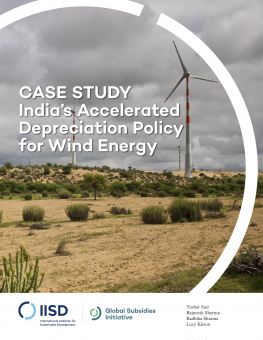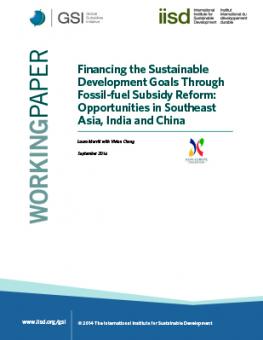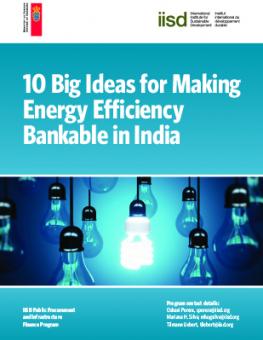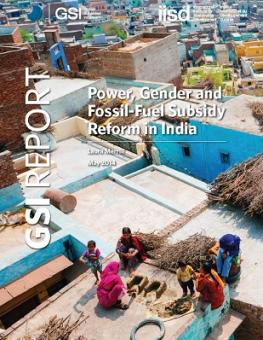
India's Accelerated Depreciation Policy for Wind Energy
This case study—one of a series of cautionary tales on renewable energy subsidies—examines how the policy of accelerated depreciation for wind power projects has affected the development of the wind power industry in India.
In recent decades, wind power in India been deployed at a tremendous rate, such that wind power projects now account for two thirds of total renewable energy generating capacity and almost one tenth of total installed generating capacity.
This case study examines one of the policies that is widely considered to be the primary driver behind this expansion—accelerated depreciation (AD) for wind power projects.
The case study reviews the modalities of the policy, focusing on how they have influenced the characteristics of India’s wind power industry. It considers not only the increase in wind power capacity and to what extent this can be attributed to the AD policy, but also how the policy has affected wind power generation and the development of the wind turbine industry in India. The analysis draws on research conducted to date on this and similar policies in other countries (notably the United States), as well as on a series of interviews with industry stakeholders.
Based on this analysis, the case study reflects on the positive and negative lessons that can be drawn from the AD policy and how these lessons could be incorporated into future policies in the sector, both in India and elsewhere.







